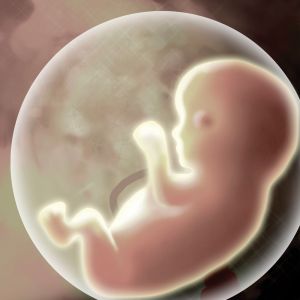By zeroing in on two of Canada’s perennial hot-button topics — abortion and multiculturalism — the editorial ignited a storm of media reaction. Most of it opposed any restriction on providing “information” to parents even while being critical of having an abortion solely because the unborn child is a girl.
Nevertheless, there were uncomfortable questions. As Marni Soupcoff put it in a National Post panel Jan. 17, “Why is it not okay to abort a child because she’s female, but perfectly acceptable to abort a child because he or she has Down syndrome?... Either the fetus has rights or not. If not, then sorry, no ‘good’ reason is necessary for an abortion. If yes, it gets complex.”
Barbara Kay supported a ban on sex-selective abortions, in part because society has an interest in maintaining a natural gender balance. She also noted the ironic absence of hard-line feminists from the issue, given that the “right” for which they supposedly fought so hard is now being used to eliminate females.
Abortion advocacy organizations opposed withholding information obtained in pre-natal scans, citing the difficulties of allowing some reasons for abortion but not others. REAL Women of Canada, on the other hand, noted in a press release that “equality between the sexes and the prohibition of discrimination against females, applies throughout the entire life span. What do other rights matter if the child is not allowed to be born, simply because she is of the female gender?”
Discussion of sex-selection abortion shifts the focus from mother to unborn child, and some published commentaries captured this reality well. As Margaret Somerville put it in a Jan. 24 commentary, “Sex-selection abortions are often referred to as ‘female feticide’ or ‘gendercide’ — both emotionally evocative terms. But all abortions are feticide. Why don’t we refer to them as such? And, cumulatively, abortion decisions have an impact on society and are not just a private matter.”
While acknowledging that the CMA journal’s proposal is “well-intentioned” and aimed at stopping a practice that devalues women, The Star could not support it, claiming it would be a “huge intrusion” into parents’ lives and probably wouldn’t work anyway. Education, it said, is the better course. The Globe and Mail was even less supportive, stating in an opinion piece by Andre Picard that criminalizing the ultrasounds and amnios or withholding the information would be “patronizing and unethical.”
Clearly, some find it difficult to oppose even the most repellent of practices when doing so might shine a light on unfettered access to abortion in Canada. From a Catholic teaching perspective, dilemmas like this are impossible to resolve in the absence of a consistent ethic for life and the absence of even minimal protection for the unborn.
Efforts to stop abortion and encourage equality in the womb are welcome, and few would dispute that education and legislative initiatives are both important. However, it’s impossible to support a scenario where sex selection would be discouraged but all other screening factors would continue.
Over the Christmas break, two MPs proposed a renewed discussion of legislative efforts to have a legal framework around abortion. Stephen Woodworth said it may be time to re-visit the centuries-old law that confers the rights of legal personhood only after complete, live birth. Jeff Watson said discussion about a new abortion law is needed and that Parliament is the place to have it.
No one is holding their breath waiting for any of this to happen. The federal government’s insistence that abortion will not be re-visited is well documented. But pressure for a legislative response will grow.
A welcome debate
The January issue of the Canadian Medical Association Journal included an editorial proposing that the gender of an unborn child be withheld from parents until 30 weeks gestation to prevent gender-based abortions, a practice that typically targets females.
While screening for the sole purpose of sex selection is illegal in Canada, and not believed to be widespread, there is convincing anecdotal evidence that it does occur, particularly within ethnic communities where sons are more valued than daughters.
Please support The Catholic Register
Unlike many media companies, The Catholic Register has never charged readers for access to the news and information on our website. We want to keep our award-winning journalism as widely available as possible. But we need your help.
For more than 125 years, The Register has been a trusted source of faith-based journalism. By making even a small donation you help ensure our future as an important voice in the Catholic Church. If you support the mission of Catholic journalism, please donate today. Thank you.
DONATE

